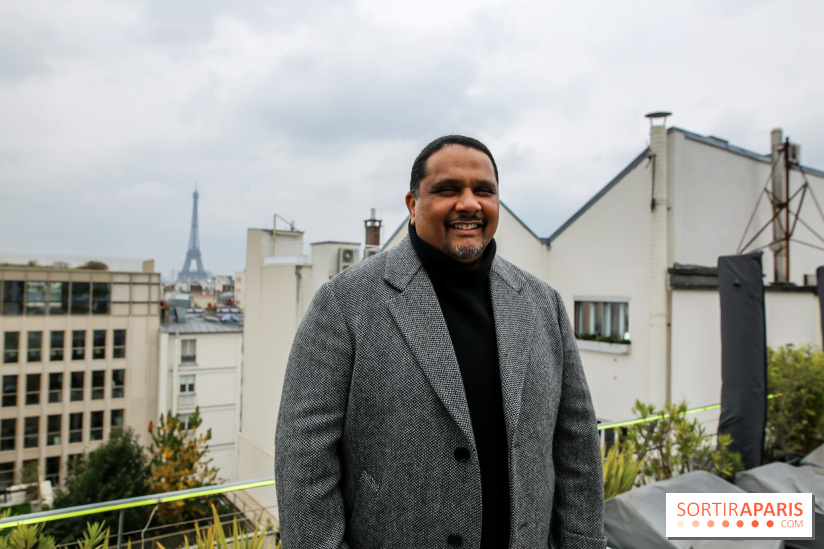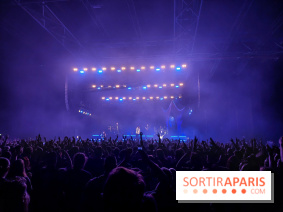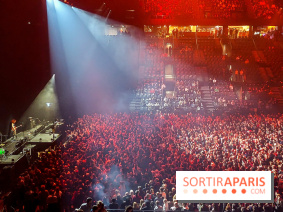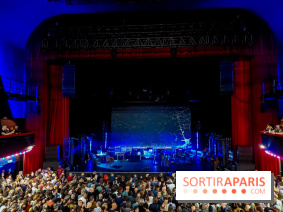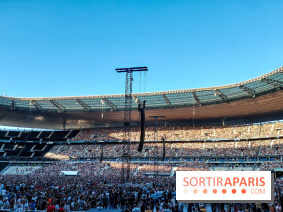Beyoncé, Lady Gaga, U2, Linkin Park, Depeche Mode, Coldplay, Billie Eilish, Dua Lipa, DJ Snake, Rihanna, Madonna, Ghost, Pitbull... It's hard to list all the artist concerts produced by the Live Nation behemoth. But the world leader in the live music market doesn't limit itself to concerts. Live Nation also organizes several festivals around the world, including the famous Lollapalooza. With 2025 just around the corner, we spoke to Angelo Gopee. The General Manager of Live Nation France visited our offices to discuss the major upcoming concerts in the capital, the return of Lolla Paris and his vision of the music industry.
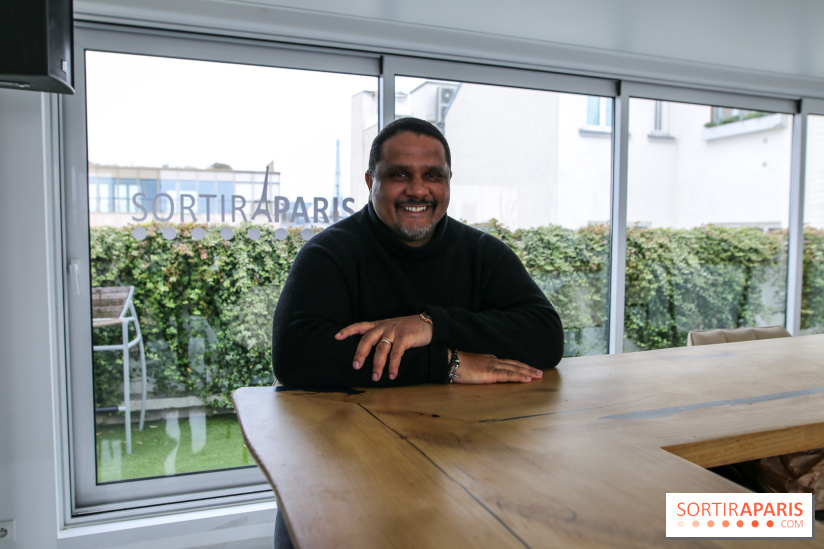



Can you tell us a little about Live Nation?
Angelo Gopee: Live Nation is the world's largest organizer of tours, festivals and concerts. We are present in 43 countries, and organize some 43,000 events a year, including 4,000 in France. In the space of a few decades, Live Nation has extended its activities to other territories, such as Asia, Australia and above all Latin America, which emerged around 8 years ago.
How many artists do you tour with Live Nation every year in France, and more widely around the world?
Angelo Gopee: In France, we tour between 1,000 and 1,500 artists a year, depending on tours and events. In the U.S., we're somewhere between 4,000 and 4,500 artists worldwide.
Which of Live Nation's flagship artists are expected to perform in Paris in 2025? And on the other hand, who are the up-and-comers to watch over the coming months?
Angelo Gopee: Apart from those we can't say, many are already on sale, such as Billie Eilish, Gracie Abrams, Sabrina Carpenter, Pitbull... There's also Weezer, who'll be back on stage. And there are already sold-out concerts by DJ Snake, David Guetta and Imagine Dragons. Many of these events attract international audiences and are a real economic draw. For example, at Usher's Paris residency, 50% of the audience came from abroad. For Beyoncé and Jay-Z's concert at Stade France, 60% of the 180,000 spectators were from abroad.
As for young talent, the list is long, so it's hard to enumerate them all. But this year, there's Chappell Roan, who's really exploded, and Sabrina Carpenter too. She did a Zenith last year and will be doing two full Accor Arenas by 2025. We're on a dynamic with young artists who are moving pretty fast today compared to before. A few years ago, you had to make two or three albums before giving a concert in a big hall. Nowadays, artists are practically playing a big venue as soon as they release their first album.
What are the major musical trends of the coming months?
Angelo Gopee: K-pop and Afro-fusion have emerged, with Burna Boy for example, who will be playing at the Stade de France in 2025. There's also C-Pop, with Jay Chou at the Paris La Défense Arena last January (28,000 people). Country music is also making its mark, with artist Shaboozey for example. I'm also thinking of RnB, which is making a strong comeback, and reggaeton with Karol G. It's all a question of cycles, so I think rock will be back soon too.
What can we expect for the return of Lollapalooza Paris after a forced hiatus in 2024 due to the Olympics?
Angelo Gopee: We've already announced Olivia Rodrigo as Friday's headliner, along with other big names like David Guetta, Justin Timberlake, The Last Dinner Party, Feid, who is today's biggest Latin pop artist, and Joé Dwèt Filé, an artist who's still fairly unknown to the general public, but capable of filling two Accor Arenas, center stage, i.e. 40,000 people in all. As in the past, Lollapalooza aims to establish itself as a festival for contemporary music.
In terms of new features, we'll be setting up a soundsystem with different themes each day (reggaeton, afro, hip-hop...). The idea is to get back to the very essence of music: no stage, just a soundsystem on the floor with people dancing around it. The Lolla Planet continues, as does the Lolla Chef, the festival's must-see space, introduced in 2017. I consider chefs to be just as much artists today as anyone else. It's important to make chefs known to the general public available with affordable dishes, between 8 and 24 euros. The names of the participating chefs are due to be announced in December. Finally, there will be no Kidzapalooza in 2025. It will be replaced by a wellness area. This will be a relaxation area dedicated to festival-goers who want to rest their ears, lie down and find some peace and quiet.
Will other Live Nation festivals emerge in France and Paris in the next few years? Can we expect the Download Festival to return to Brétigny?
Angelo Gopee: Festivals are a complex issue in France, not least because of logistical and infrastructure constraints. Paris is sorely lacking in large, dedicated venues for large-scale events, which makes it difficult for a festival like Download to return. Transportation problems and sound issues related to the neighborhood are also challenges we have to face. There's a dichotomy today in terms of the ambition we can have for music. However, we offer different formats, such as the Brunch Electronik in Paris, which welcomed 10,000 people, and Afterlife in Paris La Défense with 38,000 spectators.
In recent years, more and more concerts have sold out within minutes. How do you explain this craze for live music?
Angelo Gopee: There are several factors behind this craze. In particular, digitalization has made music more accessible than ever, and during Covid many people discovered new artists online. Today, millions of people consume music via digital platforms, enabling many artists to reach a wide audience. When an artist who was listened to by a few thousand people before Covid sees his or her fan base explode, it's natural that concerts sell out very quickly. Live music remains an unparalleled experience; it brings emotions and creates memories, something that digital cannot replace.
A word about dynamic pricing for concert tickets. Why is it being introduced?
Angelo Gopee: In France, dynamic pricing has already been in use for 5 years in a number of sectors, such as sports, hotels and transport (trains and planes). But it doesn't yet exist in concerts. But it's coming. But why condemn it for music and not for sports, for example? It allows prices to be adjusted according to demand, which directly benefits artists, venues and Sacem, and also limits the black market in tickets. The day this happens in France, our way of communicating will be important. But in my opinion, it's a non-issue, because this system has already been around for a few years. In fact, the subject has taken on gigantic proportions, because for the Oasis tour, there were 10 million people who wanted to buy a million tickets.
One last question, a more personal one this time, what are your best concert memories?
Angelo Gopee: I'd have to say the Beyoncé and Jay-Z concert at the Stade de France in 2014, during the "On The Run Tour". The tour wasn't American and both dates were sold out.
What would be your wishes for 2025 for the 10 million Sortir à Paris readers who are fans of live events?
Angelo Gopee: I'd like to see even more concerts, so that everyone can go out to festivals and discover new artists. We need new talent to fill tomorrow's venues. I encourage people to go and see all the new emerging scenes and new musical trends, because France has incredible talent.
